Initially I have such a list :
List<Car> cars = db.Car.Where(x => x.ProductionYear == 2005).ToList();
Then I'm trying to join this list with two large tables using LINQ like this :
var joinedList = (from car in cars
join driver in db.Driver.ToList()
on car.Id equals driver.CarId
join building in db.Building.ToList()
on driver.BuildingId equals building.Id
select new Building
{
Name = building.Name;
Id = building.Id;
City = building.City;
}).ToList();
Both Driver and Building tables have about 1 million rows. When I run this join I get out of memory exception. How can I make this join work? Should I make the join operation on database? If yes, how can I carry cars list to the db? Thanks in advance.

